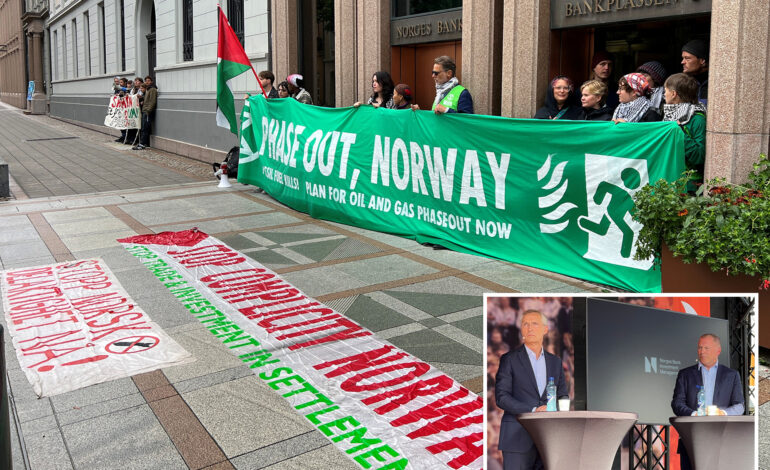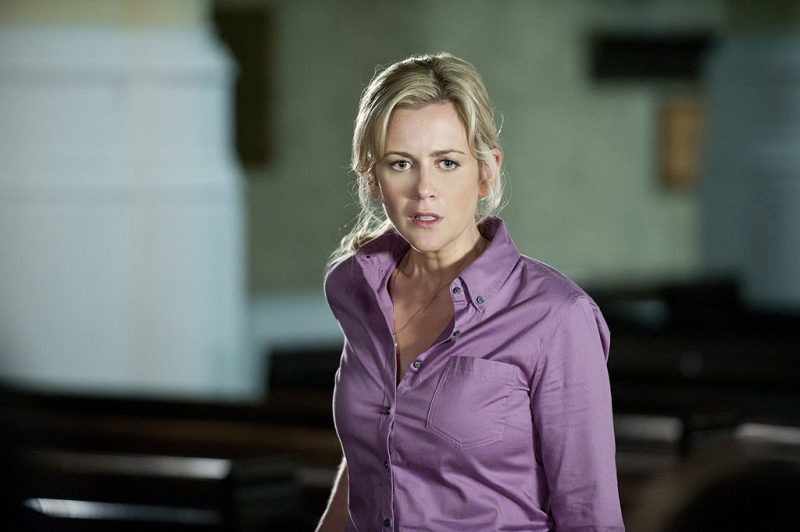Norway’s Election Battle Centers on Israel Investments Debate

Investments in Israel have emerged as a pivotal issue in Norway’s election campaign, igniting a public debate over the operations of the world’s largest sovereign wealth fund. With the general election scheduled for September 8, the discussion is intensifying, potentially influencing the political landscape of the next government.
The right-wing parties, including the Conservatives, Progress Party, Liberals, and Christian Democrats, are currently projected to secure 85 seats in parliament, just one seat above the majority threshold, according to an average of polls compiled by pollofpolls.no. This tight race puts pressure on the incumbent Labour Party, which faces a robust challenge from the left-wing Socialist Left. Recently, the Socialist Left declared it would only support a future Labour government if it divested from all companies involved in what it termed “Israel’s illegal warfare in Gaza.” The Labour Party has rejected this demand, yet it may find it challenging to dismiss similar calls once the election concludes.
Concerns Over Trust and Ethical Investment
Nicolai Tangen, CEO of the fund, expressed his concerns regarding the situation, stating, “This is my worst ever crisis.” He emphasized the importance of maintaining trust in the fund’s operations. In a recent interview with Reuters, Tangen ruled out the possibility of stepping down, asserting his commitment to fulfilling the fund’s mandate as established by parliament.
Since June 30, the fund has divested from 23 Israeli companies after reports surfaced that it held a stake in a jet engine company servicing Israeli fighter jets. Prior to this, the fund had only divested from two Israeli companies during the last war. As of August 14, the fund had stakes in 38 companies valued at 19 billion crowns (approximately $1.85 billion), spanning sectors such as banking, technology, consumer goods, and industrials. Jens Stoltenberg, Norway’s Finance Minister, indicated on August 18 that further divestments are anticipated.
Advocates for divesting from Israel argue that Norway’s investments contribute to violations of international law by supporting companies operating in the occupied Palestinian territories. They contend that the fund’s formal divestment process, which adheres to ethical guidelines set by parliament, is excessively prolonged. Conversely, supporters of the current process argue that it is essential for ensuring fairness and avoiding arbitrary decisions.
Balancing Ethics and Investment Transparency
The fund, which manages Norway’s oil and gas revenues to prevent overheating the domestic economy, boasts a size exceeding $2 trillion, or roughly $355,000 for every Norwegian citizen. Its operations typically remain low-profile, but the current debate has thrust it into the spotlight. Traditionally, the largest parties in parliament collaborate to reach a “supermajority” on changes to the fund to maintain continuity across government transitions.
Mahmoud Farahmand, a lawmaker from the opposition Conservatives, noted that the fund’s visibility increases the risk to its reputation. He stated, “The fund is now invested in close to 9,000 companies globally. The more visible this fund is out in the world, the higher the risk to its reputation.”
Despite fund officials expressing confidence in managing the current public challenges, private concerns persist. Minutes from a December 6 meeting, obtained by Reuters through a freedom of information request, reveal discussions among fund operator Norges Bank Investment Management (NBIM), the Council on Ethics, and the finance ministry about balancing ethical investments with the risk of being perceived as taking hostile government actions. The minutes highlighted the challenges posed by companies with dominant state ownership, particularly in authoritarian regimes.
The Council on Ethics acknowledged the risk that recommendations could be interpreted as direct criticism of authorities, complicating the fund’s ethical stance in Europe and emerging markets.
In public discourse, Finance Minister Stoltenberg has faced significant criticism from the Standing Committee on Scrutiny and Constitutional Affairs, the highest supervisory body in parliament. Peter Froelich, the committee’s head, described Stoltenberg’s responses as “the most arrogant” he has encountered during his tenure, criticizing the minister for avoiding direct answers to factual questions.
The fund operates under ethical guidelines established in 2004 by Conservative finance minister Per-Kristian Foss and later implemented by his left-wing successor, Kristin Halvorsen. These guidelines stipulate that the fund cannot invest in companies implicated in serious violations of individual rights during conflict. Halvorsen remarked, “Public support for saving money this particular way is dependent on the ethical guidelines being followed.”
As the election approaches, the challenge of maintaining the fund’s political impartiality remains a critical issue. Former Prime Minister Erna Solberg, who led Norway from 2013 to 2021, emphasized the importance of keeping the fund’s investments free from political influence. “Having this principle that investments are done without political influence has been important for us,” she stated during a meeting with foreign correspondents.
During a town hall event in the southern city of Arendal, Stoltenberg acknowledged that the fund has faced ongoing challenges, stating, “We have managed, for 30 years, to do something that no other country has been even close to doing: take the revenues from our natural resources, save all the money, and only use the financial return.”






